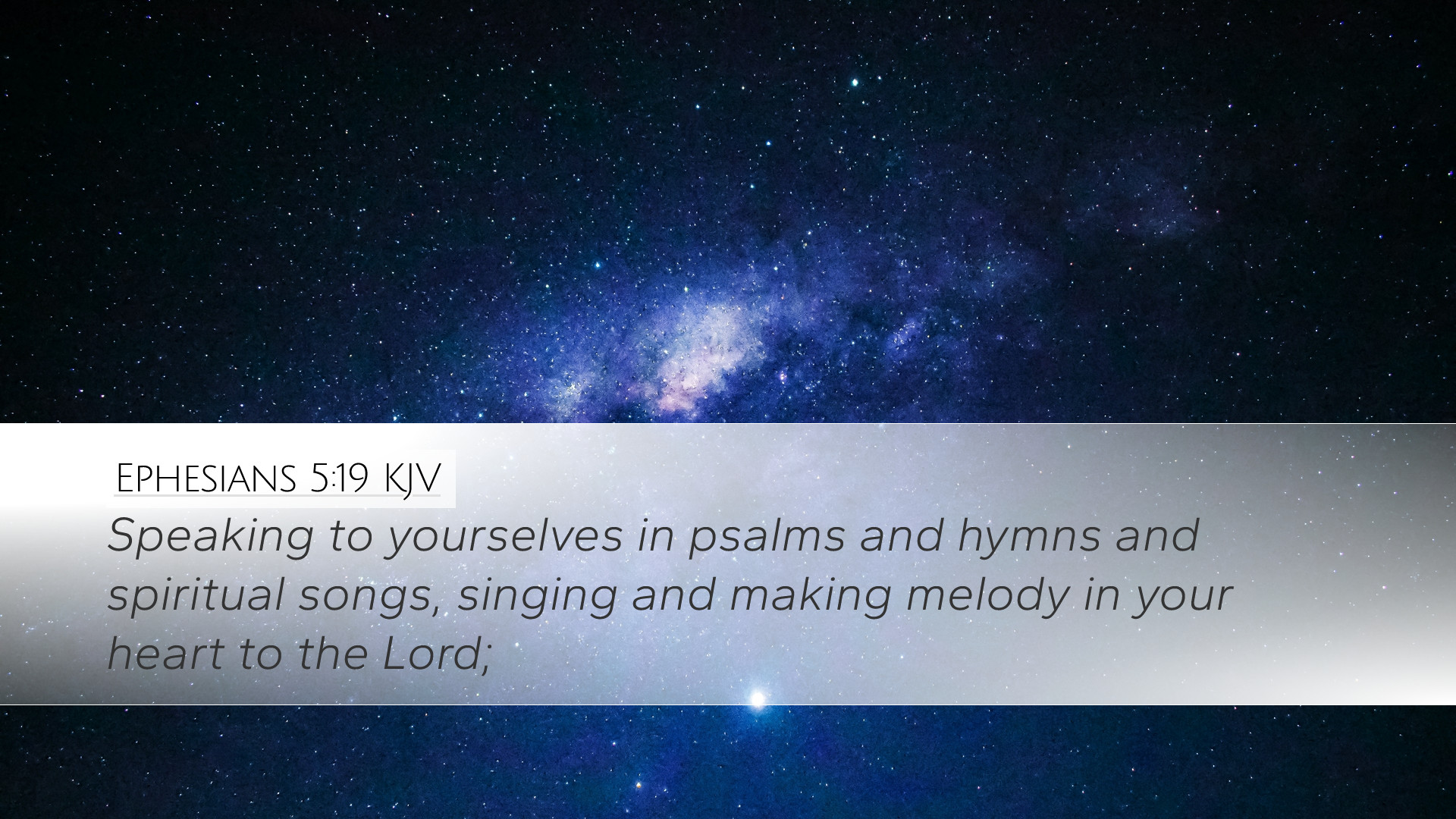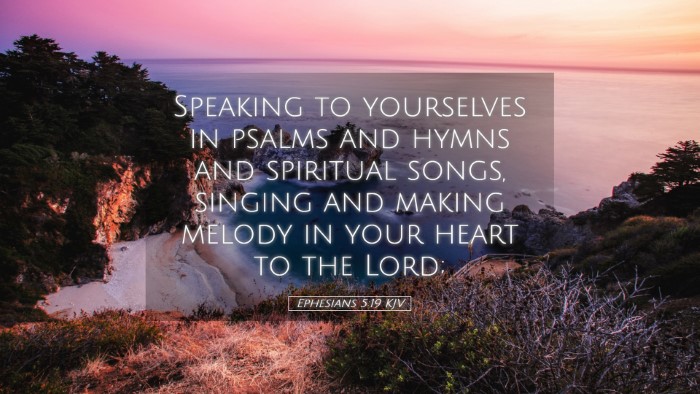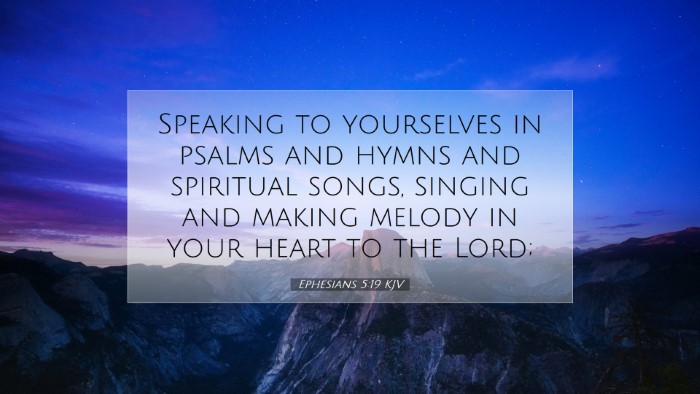Ephesians 5:19 - Commentary Summary
Bible Verse: "Speaking to yourselves in psalms and hymns and spiritual songs, singing and making melody in your heart to the Lord;" (Ephesians 5:19, KJV)
Introduction
This verse serves as a rich source for understanding the nature of Christian worship and the communal aspect of faith. The Apostle Paul encourages the believers in Ephesus to engage in mutual edification through music, highlighting the importance of spiritual fellowship.
Contextual Background
In the broader context of Ephesians, Paul discusses the implications of living as children of light and how this should manifest in the lives of believers. Ephesians 5:19 stands as a contrast to the behaviors characterized by darkness, promoting a lifestyle filled with the Holy Spirit.
Exegesis of Key Concepts
- Speaking to Yourselves:
This phrase emphasizes mutual encouragement among believers. Matthew Henry notes that the church community should actively engage in uplifting each other.
- Psalms, Hymns, and Spiritual Songs:
Albert Barnes remarks that this triadic classification of music encompasses the various forms of worship that honor God. Each category speaks to the richness of divine expression in the believer's life.
- Singing and Making Melody:
Adam Clarke draws attention to the act of singing, suggesting that it should arise from a sincere heart, expressing genuine affection for God. Such music is not merely ritualistic but serves to deepen one's personal relationship with the Lord.
- In Your Heart:
This inward expression of worship is crucial. Clarke posits that it relates to the posture of the heart—indicating that true worship must originate from an authentic love for God, diverging from mere external performance.
- To the Lord:
All songs and expressions of worship are ultimately directed toward God. Henry notes that this directs the believer's focus and intention, advocating for a lifestyle reflective of God’s glory.
Theological Implications
The implications of Ephesians 5:19 extend far beyond mere musical instruction; they encompass areas of theology, church practice, and personal spirituality.
- Worship as Community Life:
The verse advocates for a community-centered approach to worship, suggesting that corporate singing fosters unity among believers and reinforces collective faith.
- Music as a Tool for Edification:
Paul affirms that music is an essential tool for teaching and admonishing one another, a sentiment echoed by Henry who emphasizes the integral role music plays in the spiritual formation of the community.
- Spiritual Joy:
True spiritual songs stem from a heart filled with joy in the Lord. This joy is not contingent upon circumstances but flows from a deep-seated relationship with Christ, as highlighted by Clarke.
Practical Applications
Pastors, students, theologians, and Bible scholars can draw crucial insights from this verse as they seek to apply it within their contexts:
- Developing Worship Practices:
Church leaders should create environments where expressive worship through collective song is prioritized, promoting engagement and participation.
- Encouraging Original Composition:
Believers ought to embrace creativity in worship, writing new psalms and hymns that reflect their own spiritual journeys and experiences.
- Fostering Community:
This verse serves as a powerful reminder of the importance of community within the church, urging members to speak life and truth into one another’s hearts and lives through shared worship.
Conclusion
Ephesians 5:19 encapsulates the essence of a Spirit-filled life characterized by mutual encouragement through worship. As believers gather in unity, engaged in heartfelt singing and spiritual expression, they not only glorify God but also strengthen the bond of faith within the community. This verse resonates with all who seek to understand the deeper dimensions of worship, urging them to cultivate a sincere worship life that honors the Lord and enriches their communal and individual spirituality.


